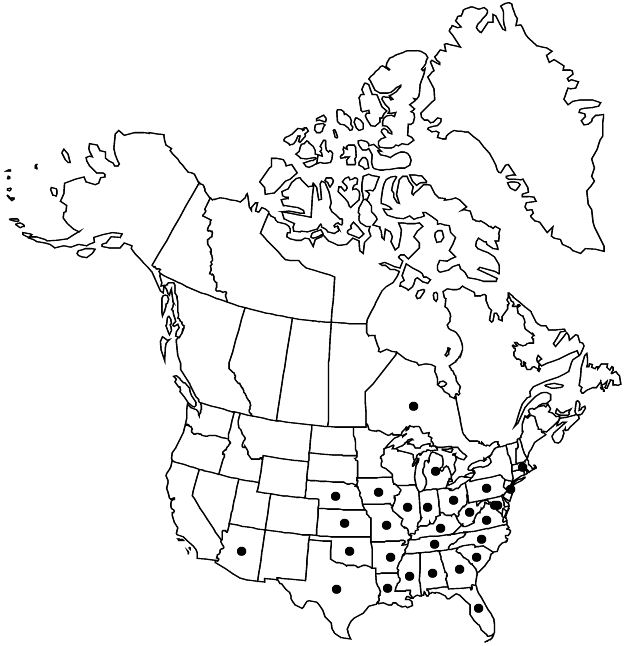Difference between revisions of "Sida spinosa"
Sp. Pl. 2: 683. 1753.
FNA>Volume Importer |
imported>Volume Importer |
||
| (3 intermediate revisions by 2 users not shown) | |||
| Line 16: | Line 16: | ||
|name=Sida alba | |name=Sida alba | ||
|authority=Linnaeus | |authority=Linnaeus | ||
| + | |rank=species | ||
}} {{Treatment/ID/Synonym | }} {{Treatment/ID/Synonym | ||
|name=S. alnifolia | |name=S. alnifolia | ||
|authority=Linnaeus | |authority=Linnaeus | ||
| + | |rank=species | ||
}} {{Treatment/ID/Synonym | }} {{Treatment/ID/Synonym | ||
|name=S. angustifolia | |name=S. angustifolia | ||
|authority=Miller | |authority=Miller | ||
| + | |rank=species | ||
}} {{Treatment/ID/Synonym | }} {{Treatment/ID/Synonym | ||
|name=S. heterocarpa | |name=S. heterocarpa | ||
|authority=Engelmann | |authority=Engelmann | ||
| + | |rank=species | ||
}} | }} | ||
|hierarchy=Malvaceae;Malvaceae subfam. Malvoideae;Sida;Sida spinosa | |hierarchy=Malvaceae;Malvaceae subfam. Malvoideae;Sida;Sida spinosa | ||
| Line 49: | Line 53: | ||
-->{{#Taxon: | -->{{#Taxon: | ||
name=Sida spinosa | name=Sida spinosa | ||
| − | |||
|authority=Linnaeus | |authority=Linnaeus | ||
|rank=species | |rank=species | ||
| Line 64: | Line 67: | ||
|publication year=1753 | |publication year=1753 | ||
|special status=Weedy | |special status=Weedy | ||
| − | |source xml=https:// | + | |source xml=https://bitbucket.org/aafc-mbb/fna-data-curation/src/2e0870ddd59836b60bcf96646a41e87ea5a5943a/coarse_grained_fna_xml/V6/V6_583.xml |
|subfamily=Malvaceae subfam. Malvoideae | |subfamily=Malvaceae subfam. Malvoideae | ||
|genus=Sida | |genus=Sida | ||
Latest revision as of 22:22, 5 November 2020
Subshrubs or herbs, annual or perennial, 0.2–1 m, rarely taller. Stems erect, minutely stellate-hairy, hairs to 0.5 mm. Leaves: stipules free from petiole, 1-veined, subulate, 3–6 mm, 1/2 as long as petiole; petiole 5–15 mm, usually 1/4–1/2 length of blade, sometimes shorter, minutely stellate-hairy, hairs to 0.5 mm, usually with small spinelike tubercle on stem just below its attachment; blade ovate, lanceolate, or narrowly oblong, 2–6 cm, smaller apically, 2–5 times longer than wide, base subcordate, margins crenate-serrate to base, apex usually acute, surfaces stellate-tomentulose abaxially, glabrate adaxially. Inflorescences axillary solitary or 2–4 clustered flowers. Pedicels 0.5–1 cm, subequal to calyx and subtending petiole. Flowers: calyx angulate, 5–7 mm, minutely tomentose, lobes triangular; petals yellow, rarely white, 5 mm; staminal column glabrous; style 5-branched. Schizocarps subconic, 4–5 mm diam., hairy; mericarps 5, 3–4 mm, somewhat rugose, apex spined, spines 1 mm, antrorsely hairy. 2n = 14, 28.
Phenology: Flowering year-round in warmer areas, summer elsewhere.
Habitat: Roadsides, pastures, disturbed ground
Elevation: 0–1500 m
Distribution

Ont., Ala., Ariz., Ark., D.C., Fla., Ga., Ill., Ind., Iowa, Kans., Ky., La., Md., Mass., Mich., Miss., Mo., Nebr., N.J., N.C., Ohio, Okla., Pa., S.C., Tenn., Tex., Va., W.Va., Mexico, West Indies, Central America, South America.
Discussion
A small spur sometimes is present on the abaxial side of the petiole at the juncture with the stem, to which the specific epithet refers. It is not a spine and occasionally is absent.
Selected References
None.